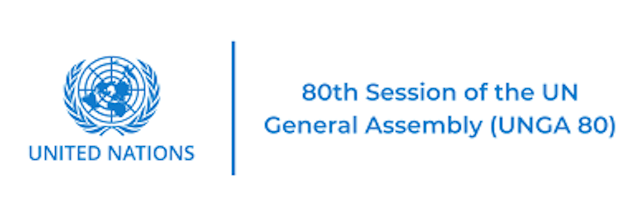The Digital Cooperation Organization (DCO), a coalition of 16 nations including Nigeria, has underscored the imperative of international collaboration to leverage digital transformation for global well-being and prosperity. Meeting at the first High-level Dialogue for Digital Cooperation during the 80th United Nations General Assembly in New York, the DCO member states issued a joint statement emphasizing the urgent need to dismantle digital barriers and foster cross-border cooperation to build resilient and inclusive digital economies. This commitment reflects a shared understanding that digital fragmentation hinders global progress and that collaborative efforts are essential to unlock the full potential of the digital economy for all. The DCO membership, representing a diverse group of countries across Africa, Asia, and Europe, signifies a broad-based commitment to this shared vision.
The DCO member states, comprised of Bahrain, Bangladesh, Cyprus, Djibouti, The Gambia, Ghana, Greece, Jordan, Kuwait, Morocco, Nigeria, Oman, Pakistan, Qatar, Rwanda, and Saudi Arabia, have pledged to align their national digital strategies with common principles of digital inclusion, responsible innovation, and the development of robust digital ecosystems. This alignment aims to create a harmonized approach to digital development, ensuring that the benefits of digital transformation are accessible to all citizens and that innovation is pursued responsibly within a supportive digital environment. The commitment to these shared principles underlines the DCO’s focus on sustainable and equitable digital growth.
The emphasis on South-South and Triangular partnerships reflects the DCO’s commitment to fostering inclusive growth through innovative cooperation models. These partnerships, which involve collaboration between developing countries and often include support from developed countries or international organizations, are recognized as crucial mechanisms for sharing knowledge, resources, and best practices. This approach recognizes the unique challenges and opportunities faced by developing countries in the digital sphere and highlights the importance of mutual support and collaboration in addressing them effectively.
To monitor progress towards its objectives, the DCO will utilize data-driven tools such as the DCO Digital Economy Navigator, a platform designed to provide insights into the digital economies of member states and facilitate evidence-based policymaking. The organization also welcomes the expansion of the UN Group of Friends for Digital Cooperation, co-chaired by Pakistan and Saudi Arabia, as a vital platform for sustaining multilateral dialogue on digital issues within the United Nations framework. These initiatives reflect the DCO’s commitment to transparency, accountability, and ongoing dialogue in its pursuit of a collaborative approach to digital transformation.
Established in 2020, the DCO stands as the first intergovernmental organization solely dedicated to advancing inclusive and sustainable digital economies. Holding observer status at the UN, the DCO represents a significant population of over 800 million people, with a majority under 35 years of age, highlighting the organization’s focus on empowering youth in the digital age. This demographic focus emphasizes the importance of equipping future generations with the digital skills and opportunities needed to thrive in an increasingly digital world.
The DCO actively engages with governments, private sector stakeholders, and civil society organizations to foster digital inclusion, facilitate cross-border data flows, empower women and youth, and promote entrepreneurship and the growth of small businesses. This multi-stakeholder approach recognizes the complex interplay between different actors in the digital ecosystem and the need for collaborative efforts to realize the full potential of digital transformation. By bringing together governments, businesses, and civil society, the DCO aims to create a synergistic environment that fosters innovation, promotes inclusive growth, and ensures that the benefits of the digital economy are shared by all.


